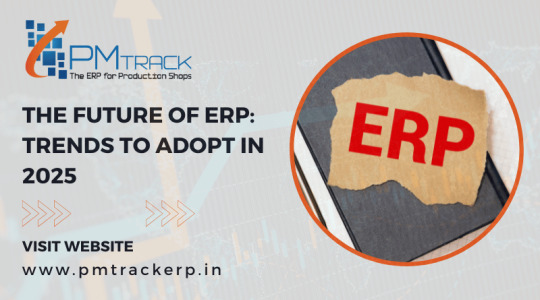#cash flow forecasting software
Explore tagged Tumblr posts
Text
Empower Your Accounting with Next-Gen BI and Automation

Maximize your accounting functions with PathQuest, which is a subsidiary of Pacific Accounting & Business Services (PABS). With PathQuest, you can efficiently manage accounts payable, gain valuable insights, and take control of your financial landscape. By eliminating manual tasks, you can focus on business growth. Experience advanced financial operations for informed decision-making, automated workflows, and simplified accounting processes. Utilize data and automation to drive next-generation financial intelligence, streamline accounts payable processes, and transform real-time financial data into actionable insights. With PathQuest, you'll harness the power of financial efficiency and achieve business success.
Read More at https://patch.com/users/pathquest-solutions
#Financial Management Software#Accounting automation software#cash flow forecasting software#fp&a software
0 notes
Text
From Chaos to Clarity: The Essential Role of Consolidated Reporting in Multi-Entity Organizations
We live in a continually evolving business landscape, where organizations often operate across numerous entities. For these multi-entity organizations, managing financial data becomes a complex yet crucial task. As businesses expand and diversify, managing financial data across various entities becomes more complicated, yet it is essential for maintaining accurate financial records and making informed business decisions. As a result, consolidating financial statements for these organizations goes beyond just a regulatory requirement, functioning instead as an essential and necessary strategic imperative.
Read More
#software#finance#account#business#accounting#Financial Analysis#Business Insights#Financial analysis tool#Consolidated Reporting#Financial Reporting#Business Reporting#Profit and Loss Analysis Report#Management Reporting#Cash Flow Forecasting#Account payable#Account payable process
0 notes
Text
Why Analyzing Financial Data is Crucial for Your Trucking Business
Photo by Pixabay on Pexels.com If you’re having a tough time keeping your business on track. We get it—running a trucking company is no easy feat. There’s so much to juggle: maintenance, fuel costs, routes, driver management, and on top of that, financials. It’s overwhelming, and we know the last thing you want to think about is diving into those spreadsheets and financial reports. But let me…

View On WordPress
#accounting software#avoid bankruptcy#business#business decisions#business forecasting#business growth#business strategies#business success#cash flow management#cost savings#expense tracking#financial advisor#financial analysis#financial planning#financial tools#Freight#freight industry#Freight Revenue Consultants#fuel efficiency#increase profitability#logistics#optimize routes#profit margins#QuickBooks for truckers#reduce expenses#small business trucking#Transportation#truck fleet management#trucker tips#Trucking
0 notes
Text
Automated cash flow forecasting can help you streamline your finances
Are you tired of dealing with unpredictable cash flow? Do you constantly worry about whether you have enough money to cover essential expenses and seize growth opportunities? Does the thought of managing your company's finances send chills down your spine?

So, put your worries aside and welcome peace! The revolutionary Moolamore is now available, and it is a game-changing management and cash flow forecasting tool that you can always rely on! With this platform, you can automate complex manual tasks, reclaim valuable time, reduce stress, and gain crystal-clear insights into your SME company's financial future.
#automated cash flow forecasting software#financial forecasting tool#cash flow management software#automated financial analysis
0 notes
Text
Outsourced bookkeeping services have emerged as a powerful tool for streamlining CPA practices, enabling professionals to focus on what truly matters: delivering exceptional financial advisory and consulting services. As the accounting landscape continues to evolve, embracing the advantages of outsourced bookkeeping can position CPA firms at the forefront of success.
#CPA Bookkeeping#Certified Public Accountant#Financial Accounting#Small Business Accounting#Tax Preparation#Financial Reporting#Ledger Management#Income Statement#Balance Sheet#Cash Flow Analysis#Expense Tracking#Payroll Services#Tax Compliance#Budgeting and Forecasting#Audit Support#Tax Planning#QuickBooks Accounting#Financial Statements#Tax Filing#Accounting Software
0 notes
Text







At the other end of the table Helene gives a gentle laugh and spears a glistening piece of steak with her fork. Tom takes a long drink from his beer glass, as if toasting his own wit. Connor sets his fork down on his plate. Saffron tries to make eye contact with him but he is staring at the wooden salt and pepper shakers, his jaw clenched.
“That's not true at all,” Saffron says to Tom. "Why would you even say that?"
“Saff, it's okay," says Connor. “Dad just thinks he's being funny. Don't worry about it."
“All I'm trying to say is that Helene and I are exceedingly grateful to you for all you've done for Connor this term," says Tom. He bestows his shark-like smile upon her once again, but she doesn't smile back. “I meant academically, but I’m sure you’ve helped him in myriad other ways as well. We’ve noticed a lot of positive changes, haven’t we Helene?"
“Oh, definitely,” says Helene.
“What are you talking about? You wouldn't notice if I grew two heads,” says Connor.
“Watch the attitude, son,” says Tom. His tone is pleasant, and sends a small shiver down Saffron's spine.
“I'm glad to hear that you think I'm a positive influence, because I was paranoid you'd think I was a bad influence after I made Connor skip school with me the other day," says Saffron. Tom looks at her blankly, his eyebrows raised.
“I didn’t hear anything about this,” says Tom. “Did you, Hel?”
“I think I may have received a voicemail or an email from the school, now that you mention it,” Helene says. “I probably just assumed it was a message asking me to donate to the second-hand uniform sale or something.”
“Wow," says Saffron. “My mother went off her head.”
“Saffron’s mother is a police officer,” Helene tells Tom, as if this is the sole explanation for her reaction.
“Ah,” says Tom. “And what does your father do, Saffron?”
“Here we go,” mutters Connor.
“He operates a chain of childcare centres,” says Saffron.
“Really,” says Helene. “What's the name of his business?”
“Little Sprouts,” says Saffron. Both Helene and Tom make noises signifying their recognition and approval.
“Oh, I’ve heard they’re doing very well!” Helene says. “Didn’t he just open several more centres?”
“Yeah, he’s got five now,” says Saffron.
“Does he use an accountancy firm?” says Tom. Connor mutters something under his breath.
“I think Mireille- his girlfriend- does all the accounting,” says Saffron.
“There’s a wise saying that I like to tell my clients, Saffron,” says Tom. “And that saying is: 'It’s not the money that matters, it’s how you use it that determines its true value'.”
He pauses for effect.
“Woah. Interesting,” Saffron deadpans while Connor stifles a loud yawn. Helene narrows her eyes at him.
“Now, I’m sure your Dad’s girlfriend is more than competent in the area of bookkeeping and handling the payroll and the rest of the basics, but how up to date is she with the latest tax laws?” says Tom. “Does she know how to forecast cash flow? Does she realise the importance of accurate record keeping? Does she have access to the most up-to-date accounting software, which will enable she and your father to maximise business efficiency and productivity?”
"I have no idea," says Saffron sweetly. "But I'm guessing you do, right?"
100 notes
·
View notes
Text
Simplify Business Finances with Accounting and Bookkeeping Services in Delhi

Running a business in a fast-moving city like Delhi? Then you already know how important it is to stay financially organized. That’s where Accounting and Bookkeeping Services in Delhi come in. Whether you're a freelancer, a startup founder, or managing a full-fledged company—these services help you keep everything from taxes to payroll in check.
Why Bother with Bookkeeping?
Honestly, bookkeeping and accounting aren't the most glamorous parts of running a business—but they’re critical.
Bookkeeping = recording transactions Accounting = analyzing financial health
When combined, they help you:
Understand your cash flow
Stay compliant with tax regulations
Avoid financial mistakes
Plan for the future
In a city as competitive as Delhi, this kind of financial clarity gives you an edge.
Benefits of Using Accounting and Bookkeeping Services in Delhi
Let’s be real—outsourcing your finances can be a game changer.
Save Time – No more late nights with spreadsheets
Stay Legal – GST and tax rules? Handled.
Get Expert Insights – Know exactly where your money is going
Focus on Growth – Let professionals handle the rest
Cost-Friendly – Way cheaper than building an in-house team
What’s Included in These Services?
When you sign up for Accounting and Bookkeeping Services in Delhi, here’s what you’re typically getting:
Day-to-Day Bookkeeping – Entries, reconciliations, ledgers
Accounting Reports – Profit & loss, cash flow, balance sheets
Tax Management – GST, TDS, income tax filings
Payroll – Salaries, compliance, payslips
Virtual CFO – Budgeting, forecasting, business planning
How to Choose the Right Service Provider in Delhi
Not all firms are the same. When looking for someone to trust with your business numbers:
Look for ICAI-certified accountants
Make sure they use good software (Zoho Books, Tally, QuickBooks)
Ask about experience with your industry
Transparency in pricing = a must
Best for Businesses Like...
E-commerce brands
Clinics and healthcare startups
Education platforms
Manufacturers
Tech companies and freelancers
Wrapping It Up
If you’re serious about taking control of your business finances, don’t try to juggle it all yourself. The right Accounting and Bookkeeping Services in Delhi can make all the difference—helping you stay on top of things, avoid penalties, and grow confidently.
2 notes
·
View notes
Text
Medical Billing Services in Florida: 2024 Guide to Boost Revenue
Florida’s healthcare providers encounter a perfect storm of difficulties with the hurricane season, aging patients, and the intricate rules of Medicaid. Clinics lost over $4.7 million a year due to billing mistakes in 2023 alone, which is enough to hire more than 50 nurses throughout the state. This guide explores how medical billing services in Florida mitigate these issues through expert knowledge and advanced technology to stop revenue loss and streamline profits.
What Are Medical Billing Services? (And Ohio’s Reasons For The Need)
They are the financial lifeline of a clinic. Medical billing services in Florida manage the coding of the diagnosis and the appeals for denied claims. In Florida, it is more than just a contracting firm; it is a matter of survival.
Why Florida?
Medicare Mayhem: One of the most bizarre situations in America is that 32% of people living in Florida use Medicare Advantage plans, each with its own billing rules.
Hurricane Headaches: Correctly coding claims is a difficult task. After Hurricane Ian, clinics reported using ICD-10 code Z04.1 (disaster-related care) for more than 3000 claims.
Legal Landmines: The “Balance Billing” law in Florida means that a single coding mistake could incur a loss of more than $10,000 in fines.
5 Ways Florida Medical Billing Services Boost Revenue
Slash Denial Rates
AI software, like Claim Genius, is helping Miami clinics decrease denial rates. Denials due to discrepancies such as telehealth visit Cand PT code mismatches are flagged. These tools help reduce denials by 40%.
Speed Up Payments
If correctly coded, the Staywell program of Florida Medicaid processes case management claims (HCPCS code T1015) 15 days earlier than the stipulated payment period.
Ensure Compliance
By outsourcing coding to AAPC-certified specialists, Sunset Medical Group mitigated $250,000 in anticipated AHCA fines.
Cut Costs
HealthFirst Clinic of Orlando saves $67k a year by contracting billing out to Specialized-Billing.com.
Disaster-Proof Billing
Fort Myers clinics adopted cloud-based systems for billing and were able to submit 95% of claims on time after Hurricane Ian.
How to Choose the Best Medical Billing Partner in Florida
Ask These Questions:
“What is the ‘1115 Waiver’ rule and do your coders know Florida Medicaid's version?”
“Are claims manageable during the oncoming hurricane?”
Avoid These Pitfalls:
Companies with no local client references, like Jacksonville or Tallahassee clinics,
No HIPAA-compliant data centers are located in Florida.
Case Study: Tampa Clinic Recovered $220k in 6 Months
The Problem:
A primary care clinic in Tampa encountered a 45% denial rate because the practice used incorrect Medicaid codes for chronic care management (CPT 99490).
The Solution:
Engaged Specialized-Billing.com for:
In-house coding audits.
Training workshops on Florida Medicaid’s “Episodes of Care” program.
The Result:
Denials were reduced to 20% within three months.
Revenue of $220k recovered, funding two additional exam rooms.
Future Trends in Florida Medical Billing
RevCycleAI denial prediction tools forecast Medicaid denials for submission and AI-driven denial predictions are now possible.
Telehealth Boom: New modifiers like 95 for real-time telehealth are mandated by Florida’s Senate Bill 1606.
Blockchain Security: Unity Health of Miami hospital network securely shares patient data across more than 10 hospitals using blockchain technology.
Conclusion
Nothing illustrates the ever-changing Florida billing landscape better than an unpredictable summer storm. However, the chaos can be transformed into seamless cash flow with the right medical billing partner. Specialized-Billing.com utilizes AI-driven technology with on-the-ground knowledge to ensure Florida clinics flourish, even during hurricane season.
Suffering from costly billing errors? Claim your free Florida billing audit at Specialized-Billing.com today.
2 notes
·
View notes
Text
Why Instant Financial Insights Matter for Businesses Today?
Introduction Today’s fast-paced business environment, waiting until the end of the month to understand a company's financial position is no longer sufficient. Real-time accounting has emerged as a game-changer, offering immediate access to financial data, allowing businesses to make informed decisions faster than ever before. Here’s a look at why real-time accounting is trending and how it benefits businesses in this dynamic economic landscape. RVAK Consulting LLP provides comprehensive taxation services tailored to help businesses navigate complex tax regulations and optimize compliance. From strategic tax planning to accurate filing and representation, RVAK ensures clients meet their tax obligations efficiently, minimizing liabilities and maximizing opportunities.
What is Real-Time Accounting?
Real-time accounting leverages advanced accounting software and cloud technology to update financial data instantly as transactions occur. Instead of waiting for monthly or quarterly reports, business owners and stakeholders can access live financial information at any moment.
Why is Real-Time Accounting a Trending Topic?
Several factors are driving the adoption of real-time accounting:
Demand for Agility: Businesses must adapt quickly to changing market conditions, and real-time data empowers them to make swift, well-informed decisions.
Digital Transformation: With the rise of cloud-based accounting solutions, updating financial data instantly has become more accessible to businesses of all sizes.
Risk Management: Real-time insights enable proactive decision-making, helping businesses identify potential risks and address them before they escalate.
Key Benefits of Real-Time Accounting
Improved Cash Flow Management: Real-time accounting allows businesses to monitor their cash flow instantly. They can see which payments are due, forecast cash needs, and avoid potential cash flow issues.
Enhanced Decision-Making: Instant access to financial data allows business leaders to make informed, data-driven decisions. Whether it's expanding operations or cutting expenses, real-time data provides the accuracy needed to act confidently.
Accurate Financial Forecasting: With up-to-the-minute data, companies can create more accurate financial forecasts, helping them better prepare for future needs or investments.
Simplified Compliance and Tax Reporting: Real-Time Accounting simplifies compliance by maintaining accurate records that can be accessed and verified easily, making tax filing and audits more straightforward.
Reduced Errors: Automating data updates in real-time minimizes the risk of manual entry errors, leading to more accurate financial records and fewer discrepancies.
How to Implement Real-Time Accounting in Your Business
Choose the Right Accounting Software: Select a cloud-based accounting system that integrates seamlessly with your business processes and supports real-time data updates.
Automate Transaction Entries: Leverage automation features for expenses, invoicing, and payroll to ensure transactions are recorded immediately, reducing manual work.
Integrate Bank Feeds: Many modern accounting platforms allow you to sync bank transactions directly, enabling instant reconciliation and more accurate cash flow tracking.
Regularly Monitor Key Metrics: With real-time data, it’s easy to monitor KPIs, cash flow, and profit margins. Set up dashboards for an at-a-glance view of your company’s financial health.
Challenges to Consider
While real-time accounting offers numerous benefits, there are a few challenges businesses may face:
Cost of Technology: Implementing new software or upgrading existing systems may require an initial investment, which can be a barrier for smaller businesses.
Data Security: With real-time data being cloud-based, it’s critical to have robust cybersecurity measures in place to protect sensitive financial information.
Learning Curve: Shifting from traditional to real-time accounting can require training, especially for employees accustomed to older accounting processes.
The Future of Real-Time Accounting
As technology advances, real-time accounting is expected to become even more accessible and integral to financial management. Artificial intelligence and machine learning are likely to further enhance the capabilities of real-time Accounting, enabling more predictive insights and even automated financial decision-making. RVAK Consulting LLP provides comprehensive taxation services tailored to help businesses navigate complex tax regulations and optimize compliance. From strategic tax planning to accurate filing and representation, RVAK ensures clients meet their tax obligations efficiently, minimizing liabilities and maximizing opportunities.
Conclusion
Real-time accounting offers a competitive edge, enabling businesses to access financial insights instantly, respond to market changes, and make data-driven decisions. With the rise of digital tools and automation, implementing real-time accounting is easier than ever, allowing companies of all sizes to benefit from instant, reliable financial data. In an ever-evolving business landscape, real-time accounting may well become the new standard for financial management.
#RealTimeAccounting#DigitalAccounting#BusinessFinance#AccountingTrends#FinancialInsights#FinanceManagement#ModernAccounting
2 notes
·
View notes
Text
iquidi - Best Accounting Software in Bangladesh
iquidi – is the best Accounting software in Bangladesh which is designed to help businesses manage their finances. It is used to record, store, and analyze financial information such as invoices, bills, and payroll. iquidi as an Accounting software also simplifies the process of filing tax returns and preparing financial statements. Additionally, it can provide businesses with detailed financial insights, such as cash flow analysis, budgeting, and forecasting. This information can be used to make informed decisions and monitor the health of the business by providing the insights needed to make informed decisions.
2 notes
·
View notes
Text
CPAs and Small Businesses: Partners for Financial Success
Within the ever-changing landscape of the commercial realm, small firms frequently encounter the challenge of balancing numerous obligations, encompassing the efficient administration of daily activities as well as the pursuit of expansion and long-term viability. Within this intricate and multifaceted environment, a crucial alliance has the potential to provide significant outcomes - the cooperative relationship between Certified Public Accountants (CPAs) and small enterprises. Simplify your financial workflows and boost productivity. Try VNC Global’s Accounting software for CPA firms in Singapore and witness the difference.
This blog article aims to examine the potential for collaboration between Certified Public Accountants (CPAs) and small enterprises, with the objective of achieving financial success.

The Role of CPAs in Small Businesses:
● Financial Expertise:
Certified Public Accountants (CPAs) possess a comprehensive understanding of tax legislation, accounting principles, and financial regulations, making them highly proficient financial professionals. The knowledge and skills possessed by these individuals are of great value to small enterprises that are endeavouring to make well-informed choices regarding their finances. Certified Public Accountants (CPAs) provide the necessary expertise to offer crucial advice in various areas, including the establishment of appropriate accounting systems, tax planning, and financial forecasting.
● Tax Compliance:
Tax compliance can provide a formidable challenge for small business owners due to the constantly evolving nature of tax regulations. Certified Public Accountants (CPAs) possess extensive knowledge and expertise in tax laws and regulations, enabling them to ensure firms' adherence to legal requirements while also optimising their utilisation of tax deductions and credits. This practice not only results in cost savings but also mitigates the risk of future legal complications.
● Financial Planning:
Financial planning is crucial for small businesses in order to ensure long-term stability and success. Certified Public Accountants (CPAs) have the expertise to facilitate the formulation of budgets, conduct comprehensive evaluations of financial statements, and devise effective methods to enhance organisational expansion and profitability. With the assistance of their coaching, organisations have the ability to establish attainable financial objectives and efficiently track their advancement. From tax planning to auditing services, VNC Global - one of the top Accounting CPA firms in Singapore has you covered. Schedule a consultation today to discuss your specific accounting needs.
● Risk Mitigation:
Business activities inherently include financial risks. Certified Public Accountants (CPAs) provide the expertise to assist small businesses in the identification and mitigation of these risks. Certified Public Accountants (CPAs) assume a crucial position in risk management by engaging in various tasks such as cash flow management, evaluating the financial feasibility of expansion strategies, and reviewing investment prospects.
● Business Valuation:
When the decision arises to divest the business or attract potential investors, certified public accountants (CPAs) possess the expertise to deliver precise and reliable business appraisals. This practice guarantees equitable remuneration for small business proprietors' diligent efforts and facilitates the attraction of prospective purchasers or investors.
The Benefits of the CPA-Small Business Partnership:
● Financial Clarity:
One of the foremost benefits associated with collaborating with a Certified Public Accountant (CPA) is the acquisition of enhanced comprehension pertaining to one's financial circumstances. By utilising precise financial information and receiving help from professionals, small business owners are able to make well-informed decisions that contribute to the enhancement of profitability and long-term viability. Unlock cost savings and streamline your operations with professional accounting outsourcing services offered by VNC Global - your trusted partner in Outsourcing for Accounting firm in Singapore.
● Time Savings:
Time savings can be achieved by small business owners through the efficient management of their money, which can otherwise be a burdensome and daunting task. Entrepreneurs can enhance their productivity and alleviate stress by delegating financial responsibilities to a Certified Public Accountant (CPA), allowing them to concentrate on their primary business operations. This strategic approach enables entrepreneurs to save valuable time and streamline their workflow.
● Legal Compliance:
Certified Public Accountants (CPAs) play a crucial role in ensuring that small firms adhere to tax rules and regulations, hence maintaining compliance. This practice mitigates the potential for financial penalties, legal repercussions, or other legal complications, so enabling organisations to function with greater efficiency and assurance.
● Strategic Planning:
Strategic planning involves the utilisation of certified public accountants (CPAs) to assist small firms in formulating comprehensive and enduring financial strategies. This includes the establishment of attainable objectives, the optimisation of tax planning approaches, and the selection of investments that are in line with the organization's overarching vision.
● Financial Health Assessment:
Certified Public Accountants (CPAs) offer periodic evaluations of the financial well-being of firms. The continuous assessment facilitates the early detection of possible difficulties, enabling prompt adjustments and corrections to be made.
Choosing the Best CPA for Your Business:
The selection of an appropriate Certified Public Accountant (CPA) is of utmost importance in establishing a prosperous and mutually beneficial collaboration. When choosing a Certified Public Accountant (CPA) for your small business, it is advisable to take into account the following recommendations:
Qualifications: It is imperative to ascertain that the Certified Public Accountant (CPA) possesses the necessary certification and remains well-informed about current industry knowledge and regulatory requirements.
Experience: Seek out a Certified Public Accountant (CPA) who has a substantial background in collaborating with small enterprises or possesses specialised knowledge within your particular industry.
Compatibility: Compatibility is an essential factor to consider when selecting a Certified Public Accountant (CPA). It is crucial that the chosen CPA comprehends your business objectives and possesses strong communication skills, enabling seamless and efficient interaction between both parties.
Services Offered: The range of services provided includes: It is essential to identify the particular financial services that are needed and ascertain whether the Certified Public Accountant (CPA) possesses the capability to fulfil those requirements.
Fees: The discussion of costs in advance is recommended in order to prevent unexpected financial obligations. Certain certified public accountants (CPAs) employ an hourly billing structure, but others provide fixed fees or monthly retainers as their preferred pricing models.
Final Thoughts:
The collaboration between Certified Public Accountants (CPAs) and small enterprises has been identified as a key factor contributing to achieving financial success. Certified Public Accountants (CPAs) possess specialised knowledge and skills that allow them to provide valuable advice, counsel, and assurance to small business owners. By using their expertise, CPAs empower these entrepreneurs to effectively navigate the intricate financial terrain, instilling them with a sense of confidence and tranquillity.
Through the cultivation of such teamwork, small enterprises can effectively attain their financial objectives and establish a foundation for sustained expansion and profitability. For small business owners seeking to enhance their financial success, it is advisable to engage in collaboration with a proficient Certified Public Accountant (CPA) at the earliest opportunity. Discover the strategic benefits of outsourcing for your accounting firm. If you are looking for an excellent Bookkeeper for Accounting firm in Singapore, partner with VNC Global for a no-obligation outsourcing consultation.
#Accounting software for CPA firms in Singapore#Accounting CPA firms in Singapore#Outsourcing for Accounting firm in Singapore#Bookkeeper for Accounting firm in Singapore#vncglobal
5 notes
·
View notes
Text
Accounting vs. Bookkeeping: What’s the Difference?

Many small business owners use the terms “accounting” and “bookkeeping” interchangeably, but they refer to two distinct financial functions. While both are essential for maintaining accurate financial records and ensuring the overall health of a business, they serve different purposes and require varying levels of expertise. Understanding the difference between accounting and bookkeeping can help you determine what kind of financial support your business needs.
Bookkeeping: The Foundation of Financial Records
Bookkeeping is the process of recording and organizing all of a business’s daily financial transactions. This includes sales, purchases, payments, receipts, and payroll. Bookkeepers ensure that every financial activity is documented correctly and entered into the appropriate ledger or accounting software.
The primary responsibilities of a bookkeeper include maintaining general ledgers, reconciling bank accounts, generating basic financial reports, managing invoices and receipts, and monitoring cash flow. Bookkeepers follow established procedures and use tools like spreadsheets or accounting software to track all incoming and outgoing funds.
While bookkeeping requires attention to detail and accuracy, it typically does not involve analysis or interpretation of financial data. It is more about consistently recording financial information and making sure everything is up to date.
Accounting: The Bigger Financial Picture
Accounting, on the other hand, goes beyond the recording of transactions. It involves analyzing, interpreting, summarizing, and reporting on a business’s financial data. Accountants use the data recorded by bookkeepers to prepare financial statements, perform audits, file taxes, and provide strategic advice.
An accountant’s work helps business owners understand their financial health, evaluate business performance, and make informed decisions. Accounting also includes preparing budgets, forecasting future trends, managing tax planning, and ensuring regulatory compliance.
Accountants are typically more educated and qualified than bookkeepers, often holding certifications such as CPA (Certified Public Accountant). They offer insights that are critical for business planning and financial strategy.
How They Work Together
While bookkeeping and accounting are separate functions, they are closely connected. Bookkeeping lays the groundwork by providing accurate data, while accounting interprets and utilizes that data for decision-making and reporting. A business cannot have effective accounting without reliable bookkeeping. Likewise, well-maintained books are of little value without proper financial analysis.
In many businesses, especially smaller ones, a bookkeeper and an accountant may collaborate regularly. In some cases, a single person may even handle both roles, though this becomes less feasible as the business grows and financial complexity increases.
When to Bring in an Accounting Consultant
As businesses grow, financial management becomes more strategic and complex. This is where an accounting consultant in Fort Worth, TX can add value. Unlike a bookkeeper who maintains daily records or an accountant who handles routine reports and taxes, an accounting consultant provides expert advice on improving internal controls, optimizing cash flow, and planning for growth or audits. They assess the current financial setup and guide improvements that align with business goals.
Conclusion
Bookkeeping and accounting serve different but complementary roles in business finance. Bookkeeping is about accurately tracking day-to-day transactions, while accounting is about interpreting and leveraging that data. Together—and with the support of professionals like an accounting consultant—they form a strong foundation for financial clarity, compliance, and long-term success.
0 notes
Text
The Future of ERP: Trends to Adopt in 2025

Staying competitive in today’s digital-first atmosphere requires forward-thinking methods, which is where ERP systems come in. Whether you’re a major corporation or seeking reliable ERP software for small company solutions, the changing ERP landscape provides chances to streamline operations and increase productivity.
As technology and consumer expectations change rapidly, new opportunities for integrated platforms emerge. The term “ERP trends 2025” encompasses the idea of anticipating and planning well.
This article explores the cutting-edge trends influencing Enterprise Resource Planning, providing a road map to help your firm remain nimble, secure, and lucrative. Let’s look at how these trends are likely to impact operational efficiency and why it’s critical to plan for them now.
Top ERP Trends for 2025
Predicting the future of ERP requires more than just staying current with the newest buzzwords. It’s about knowing how technology fits into real-world business requirements. The following are the top ten ERP trends for 2025 and beyond, each of which promises to transform how firms approach enterprise administration.
1: Autonomous ERP Capabilities
As automation becomes the norm, “autonomous ERP” refers to technologies that can perform specific functions without human interaction. Machine learning algorithms automate repetitive tasks such as invoice matching, purchase approval, and order management. This not only lowers errors but also increases speed. By 2025, more ERP platforms will incorporate cognitive capabilities, allowing them to learn from previous data and provide recommendations for enhancing operations.
2: Hyper-Personalization Through AI
ERP solutions usually provide consistent workflows. However, excessive personalization is emerging as a primary goal, with AI-driven analytics tailoring user experiences to specific jobs and preferences.
Consider your finance manager viewing real-time cash flow dashboards, your operations lead receiving predictive maintenance alerts, and your sales team getting advanced customer insights. By evaluating each user’s patterns, the system can present the most important information at the appropriate time.
3: Advanced Analytics and Predictive Insights
The transition to data-driven decision-making is advancing. Future ERP platforms will leverage advanced analytics to provide predictive insights into demand forecasts, inventory optimization, and labor planning. Real-time data may help businesses predict order spikes, identify possible bottlenecks, and manage supply networks.
4: Unified Omni-Channel Commerce Integration
As client journeys get more complex, firms must handle several sales channels, including online marketplaces, social media, and physical stores. By 2025, ERP systems will integrate omnichannel commerce to deliver uniform product information, real-time inventory visibility, and unified order fulfillment.
5. Demand rises for industry-specific cloud
According to experts, there is a growing need for industry-specific cloud products, but there are drawbacks. Industry-specific ERP is more expensive than generic ERP solutions that can be adapted. Buyers should also be wary of a shortage of industry-specific skill sets if they go with this option.
However, enterprises are projected to accelerate their use of industry-specific cloud products in the coming years. IT service providers offer accelerators to satisfy demand, and ERP suppliers continue to produce products specialized to specific industries.
6. Regulations determine how data is stored
Organizations operating in various countries, particularly in the EU, will need to be aware of who has access to their data and how it is hosted, as sovereignty requirements tighten, according to industry experts. They will need to stay up to date on new regulations and include them in the early stages of designing and planning their IT architecture.
Currently, EU data sovereignty requirements mandate that European data be held on EU-based servers, with some exceptions. The Data Act, along with the Data Governance Act and GDPR, strengthened privacy controls and expanded protections for IoT devices, which are increasingly common in manufacturing and industrial applications, many of which are connected with ERP.
7. Vertical-Specific ERP Modules
PMTRACK ERP solutions do not necessarily suit the specific needs of particular businesses such as pharmaceuticals, aerospace, and hospitality.
Vendors are responding by creating vertical-specific modules, which include preset workflows, compliance tools, and analytics targeted to each area. By 2025, we will see more industry-specific ERP systems, reducing the need for extensive bespoke coding.
8. Embedded Collaboration Tools
ERP is more than just data storage; it also promotes collaboration. Future ERP systems will have capabilities such as integrated chat platforms, shared dashboards, and real-time document editing. Consider a supply chain manager tagging a finance officer in a purchase order conversation using the ERP interface to expedite decision-making.
9. Sustainability and ESG Integration
With rising pressure on organizations to demonstrate environmental and social responsibility, sustainability is becoming an important ERP feature. By 2025, advanced ERP solutions will include features for tracking carbon footprints, increasing resource efficiency, and ensuring ethical sourcing.
10. IoT Integration
The Internet of Things (IoT) is driving the next phase of ERP innovation. Connected devices provide for continuous data flow, which improves inventory management, equipment maintenance, and demand forecasting. For example, IoT-enabled ERPs can automatically replenish raw materials when inventory levels fall below a predetermined level.
How PMTRACK ERP Helps:
ERP systems are transforming the way firms function in a variety of industries, including manufacturing, automotive, IT services, and retail. An ERP solutions provider in Pune aims to provide a uniform platform for efficient administration by combining major business operations such as finance, human resources, inventory, and supply chain management.
PMTRACK ERP Software is a top industrial ERP provider in Pune. It is a comprehensive business management application that manages all parts of the firm, including sales, procurement, production, and compliance. PMTRACK ERP Enterprise Resource Planning software is a cutting-edge application that manages critical aspects of businesses. The systems serve to improve performance by assisting in the planning, budgeting, and prediction of financial health reports for the organization.
Manufacturing companies in Pune are using ERP solutions to streamline production processes, cut costs, and improve quality control. The automobile industry, a significant contributor, uses ERP software in Pune to manage complicated supply chains, maintain inventories, and improve customer service. Because the solution attempts to streamline all internal operations to boost organizational efficiency, it is critical to collaborate with ERP solution providers in Pune that have access to competent IT specialists on a local level to ensure successful ERP system implementation.
CONCLUSION
The road to 2025 promises a dynamic combination of automation, intelligence, and innovation in ERP systems. Whether it’s autonomous workflows, hyper-personalized user experiences, or advanced analytics, each trend addresses current organizational concerns such as operational efficiency and regulatory compliance. However, simply being aware of these tendencies is insufficient; preparation is essential. Organizations that proactively align technology, processes, and people will be better able to withstand a quickly changing market.
Embracing new capabilities such as AI-powered decision-making, blockchain-based security, and low-code development tools can result in dramatic outcomes. As your company prepares for ERP developments in 2025, remember the ultimate goal: to build a cohesive, efficient, and forward-thinking firm that thrives on change.
Adopting these ERP trends will enable firms to remain competitive in an ever-changing environment. As ERP systems become more complex, they will assist day-to-day operations while also driving strategic growth efforts. Organizations that embrace these innovations will be better equipped to face problems and exploit opportunities.
The future of ERP has come, and it is more innovative, connected, and smarter than ever. Interested in learning how to use these trends to enhance your business operations? Contact us today to see how the newest ERP innovations can help your firm.
#ERP solution providers in Pune#top industrial ERP provider in Pune#ERP software in Pune#top ten ERP trends for 2025
0 notes
Text
Accounting Services for Small Business in US
Running a small business is no easy task. From managing operations and marketing to customer service and logistics, entrepreneurs juggle many responsibilities daily. However, one of the most critical — yet often overlooked — aspects of running a business is accounting. Whether you're a solo entrepreneur, a startup founder, or a growing company, understanding and utilizing professional Accounting Services for Small Business in US can be a game-changer.
In this blog post, we will explore what accounting services involve, why they're essential for small businesses, the types of Small Business Bookkeeping Services in US, and how to choose the right provider to ensure your financial success.
Why Are Accounting Services Crucial for Small Businesses?
Accounting is more than just keeping records. It is the foundation of good business management. Accurate financial records help business owners:
Understand cash flow
Track expenses and income
Make data-driven decisions
Stay compliant with tax laws
Avoid costly mistakes and penalties
Despite these benefits, many small business owners either handle bookkeeping themselves or assign it to someone without the right expertise. This can lead to inefficient processes, missed deductions, and inaccurate financial reporting.
This is where Accounting Services for Small Business in US become vital. These services not only ensure accurate record-keeping but also provide strategic insights that help small businesses grow.
What Do Accounting Services for Small Business in US Include?
Most professional accounting firms offer a range of services tailored to the needs of small businesses. Here’s what’s typically included:
1. Bookkeeping
Bookkeeping is the process of recording all financial transactions. It’s the most fundamental accounting function and includes:
Managing accounts payable and receivable
Reconciling bank statements
Recording sales and purchases
Handling payroll entries
Using Small Business Bookkeeping Services in US ensures that your daily financial transactions are recorded accurately and consistently.
2. Financial Reporting
Professional accountants prepare detailed financial statements such as:
Balance Sheets
Income Statements (Profit & Loss)
Cash Flow Statements
These reports are essential for understanding your business’s financial health.
3. Tax Preparation and Filing
Accounting services also include tax planning, preparation, and filing. This is especially valuable for small businesses in the US, where tax codes and laws frequently change. Proper tax filing reduces the risk of audits and ensures you maximize eligible deductions.
4. Payroll Processing
Managing payroll in-house can be time-consuming and error-prone. Accounting services offer payroll management that includes:
Employee payments
Tax withholdings
Payroll reporting
This ensures compliance with federal and state employment laws.
5. Budgeting and Forecasting
Accountants can help small business owners prepare budgets, forecast revenue, and plan for the future. This is an often-overlooked part of financial planning but is critical for long-term success.
Types of Small Business Bookkeeping Services in US
Bookkeeping services can vary depending on your industry, business size, and financial complexity. Here are some common types of Small Business Bookkeeping Services in US:
1. Manual Bookkeeping
Some businesses still maintain physical records or use spreadsheets to track income and expenses. While this might work for micro-businesses, it is time-consuming and prone to errors.
2. Online Bookkeeping Software
Cloud-based accounting software such as QuickBooks, Xero, and FreshBooks allow small business owners to automate much of their bookkeeping. These tools also integrate with banks, POS systems, and payroll platforms.
3. Outsourced Bookkeeping Services
This is where a third-party provider handles your bookkeeping. It’s ideal for business owners who want accuracy, convenience, and cost-efficiency. Outsourcing Small Business Bookkeeping Services in US provides access to expert accountants without the overhead of hiring in-house.
Benefits of Hiring Professional Accounting Services for Small Business in US
1. Saves Time
Business owners can spend more time on core operations and less time managing finances.
2. Improves Accuracy
Professional accountants use industry standards and best practices to ensure data accuracy.
3. Ensures Compliance
Tax laws in the US are complex. A professional accountant ensures that your business stays compliant with all federal, state, and local regulations.
4. Supports Business Growth
With proper financial insights, business owners can make informed decisions about scaling, hiring, pricing, and marketing.
5. Cost-Effective
While hiring an accountant might seem like an added expense, it often saves money by avoiding late fees, penalties, or costly financial mistakes.
Choosing the Right Small Business Bookkeeping Services in US
Finding the right provider for Small Business Bookkeeping Services in US can feel overwhelming. Here are a few tips to help you choose wisely:
1. Look for Experience
Choose a service provider with experience in your industry. Different sectors have different accounting requirements.
2. Check Credentials
Ensure your provider is certified. In the US, look for CPAs (Certified Public Accountants) or experienced bookkeepers with proper accreditation.
3. Understand Their Technology
Your accounting partner should use modern tools and offer cloud-based services so that you can access data anytime, anywhere.
4. Assess Communication
Choose someone who explains financial matters in a clear, understandable way. Good communication is key to a healthy business relationship.
5. Ask About Scalability
As your business grows, your accounting needs will change. Choose a firm that can scale their services accordingly.
How to Integrate Accounting Services Into Your Business
Here’s a step-by-step guide to integrating professional Accounting Services for Small Business in US into your operations:
Evaluate Your Current Process
Identify where your current accounting system falls short. Are you behind on tax filings? Are reports inconsistent?
Set Your Budget
Determine how much you can spend on accounting services. Remember, this is an investment, not an expense.
Find a Reputable Service
Search online for “Small Business Bookkeeping Services in US” or “Accounting Services for Small Business in US” and review ratings, testimonials, and service offerings.
Onboard Gradually
Start with basic services like bookkeeping and tax filing. As trust builds, you can add payroll, budgeting, and forecasting.
Review and Adjust
Review your financial reports monthly and adjust your accounting strategy as your business grows.
Popular Accounting Software for Small Businesses in US
Many small business owners use accounting software alongside professional services. Some of the most trusted platforms in the US include:
QuickBooks Online: Ideal for all types of small businesses with features like invoicing, payroll, and tax reporting.
Xero: Known for its clean interface and great integrations.
FreshBooks: Great for freelancers and service-based businesses.
Zoho Books: Budget-friendly with strong automation capabilities.
Using software in combination with Small Business Bookkeeping Services in US enhances accuracy and allows for real-time financial tracking.
Common Mistakes to Avoid in Small Business Accounting
Even with expert help, there are some common pitfalls business owners should avoid:
Mixing Personal and Business Finances: Always maintain separate accounts for clarity and compliance.
Not Backing Up Data: Use cloud services or secure local backups to avoid data loss.
Ignoring Reports: Don’t just generate financial reports — use them to inform business decisions.
Delaying Tax Preparation: Start early and keep documentation ready to avoid last-minute stress.
Conclusion: Invest in Your Financial Success
Professional Accounting Services for Small Business in US are no longer a luxury — they are a necessity. With rising competition, tighter regulations, and ever-changing tax laws, small businesses need reliable, accurate, and strategic financial services more than ever.
Whether you choose a local CPA, an outsourced firm, or a tech-savvy virtual bookkeeping service, integrating Small Business Bookkeeping Services in US into your operations will boost efficiency, increase profits, and set your business on the path to long-term success.
Don’t let poor accounting hold your business back. Take control of your finances today — and watch your business grow tomorrow. Need help finding the best Accounting Services for Small Business in US? Let us connect you with trusted providers who understand your business and deliver the financial clarity you need to thrive.
0 notes
Text
From Startup to Success: How Moolamore Cash Flow Forecasting Can Boost Your Business
Wishing you could predict cash flow fluctuations with remarkable accuracy and make brilliant decisions to propel your SME company to unprecedented success?

Say goodbye to all your worries! There is a solution on the way! Enter the revolutionary Moolamore cash flow tool into the picture! Join us on this journey from startup to success as we discover how Moolamore can improve your financial management and decision-making processes! Make sure to read this blog to the end!
#cash flow forecasting for startup#cash flow forecasting tool#best cash flow forecasting software#financial forecasting software#budgeting tool#financial planning software#cash flow management tool#money management tool#business forecasting software#revenue forecasting tool#financial analysis tool#expense tracking software
0 notes
Text
BUSY Accounting Software Training | Learn GST Billing & Financial Management

Introduction
In a world where financial accuracy and regulatory compliance are essential for every business, accounting software plays a vital role. One of the standout tools gaining popularity across industries is BUSY Accounting Software. Known for its versatility, BUSY offers a robust solution for managing accounting, inventory, billing, and taxation—all in one platform. For students, job seekers, and professionals, understanding how to navigate such software can significantly elevate their career trajectory. Especially in India’s rapidly growing commercial landscape, learning to use tools like BUSY has become a cornerstone in modern accounting education.
Why BUSY Accounting Software Matters Today
BUSY is more than just a tool for tallying numbers. It allows businesses to track inventory, manage ledgers, generate GST reports, and monitor financial health with accuracy. Its user-friendly interface, along with comprehensive features like multi-location inventory and configurable invoices, makes it suitable for both small enterprises and large corporations.
As companies transition from manual bookkeeping to digital systems, there’s a rising demand for professionals who can operate software like BUSY effectively. This is where structured learning comes into play—building a strong foundation in accounting concepts while also mastering tools that are relevant in today’s job market.
Building the Foundation: Learning the Basics
For anyone beginning their journey in finance, enrolling in a basic accounting course in yamuna vihar can be the first step. These programs usually start with core concepts such as journal entries, ledgers, and trial balances before introducing software tools. By pairing these concepts with practical exposure to BUSY, learners can build a strong base for future specialization.
Some students choose to enhance their understanding through basic accounting classes in yamuna vihar, which often include practical sessions focused on using accounting software. These classes enable learners to see how theoretical knowledge translates into real-time data entry and reporting within platforms like BUSY.
Professional Training and Certification
As one progresses, more intensive learning through an accounting course in yamuna vihar or accounting training in yamuna vihar becomes valuable. These structured programs provide deep dives into tax compliance, inventory control, invoice generation, and financial reporting within BUSY. They also often simulate business transactions so learners can experience real-world applications.
Many opt for accounting certification courses in yamuna vihar to add credibility to their skills. These certifications help learners validate their proficiency with software and increase their employability in sectors such as retail, logistics, and consulting.
Advanced Modules and Business Applications
For those who are more career-focused, business accounting classes in yamuna vihar are particularly useful. These classes focus not only on mastering BUSY but also on understanding its role in business decision-making. Learners explore cash flow analysis, vendor management, and statutory reports—critical for business performance evaluation.
Similarly, a business accounting course in yamuna vihar introduces scenarios like budgeting, sales forecasting, and GST reconciliation. These courses help students grasp how financial software contributes to strategic planning and compliance.
Expanding Opportunities Beyond the Basics
As digital finance becomes the new norm, accounting training in uttam nagar has seen a significant rise in demand. Many learners enroll in an accounting course in uttam nagar to bridge their skill gaps and stay competitive in the job market. These courses often blend theoretical accounting frameworks with live projects in BUSY, giving learners an edge over traditional methods.
To complement these programs, institutions also offer accounting training courses in uttam nagar that focus on automation, audit trails, and payroll processing using BUSY. Such practical exposure helps students gain confidence in working with real data and understand how businesses use software for daily financial operations.
Certifications and Career Growth
Many institutions now offer accounting certification courses in uttam nagar to validate the skills gained through training. These certifications can enhance a resume, giving candidates a better chance at roles like junior accountant, financial analyst, or accounts executive.
To begin at a fundamental level, some students opt for a basic accounting course in uttam nagar followed by basic accounting classes in uttam nagar. These programs typically cover the essentials before transitioning to BUSY, ensuring that students have a well-rounded skill set.
Focusing on Business Accounting
As learners grow more confident, many shift toward business accounting classes in uttam nagar. These classes are designed to align with corporate standards and often include detailed modules on budgeting, internal auditing, and report customization within BUSY. A well-structured business accounting course in uttam nagar usually ends with a capstone project, where students simulate running an entire company’s books using the software.
This practical approach ensures that learners are not only software-savvy but also capable of making informed financial decisions—a quality highly sought after in today’s workforce.
Conclusion
Mastering BUSY accounting software is more than a technical skill—it's a career catalyst in the evolving financial landscape. Whether you're just starting with a basic accounting course or diving into complex business modules, combining accounting education with BUSY proficiency opens up diverse career paths.
The structured approach of blending theory with practical applications—offered through various accounting training courses and certifications—ensures that learners are well-equipped for the real world. From journal entries to tax filings, BUSY simplifies every process, allowing professionals to focus on strategy rather than paperwork.
With the right training and commitment, any student or professional can leverage BUSY to contribute effectively to their organization’s financial health, and in doing so, secure a strong position in today’s digital-first business world.
#BUSY Accounting Software#BUSY Software Training#BUSY Accounting Course#BUSY Software Basics#Learn BUSY Software#BUSY Software for Beginners#Accounting with BUSY Software
0 notes